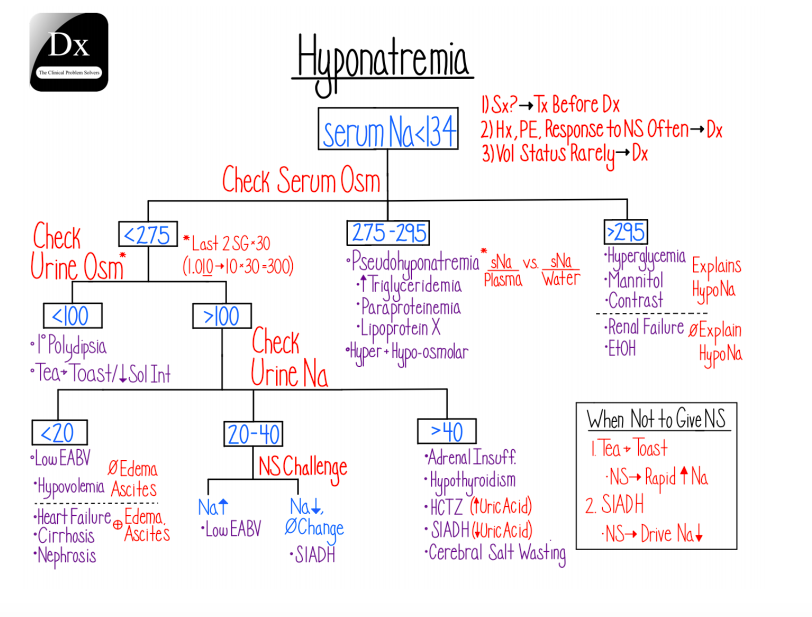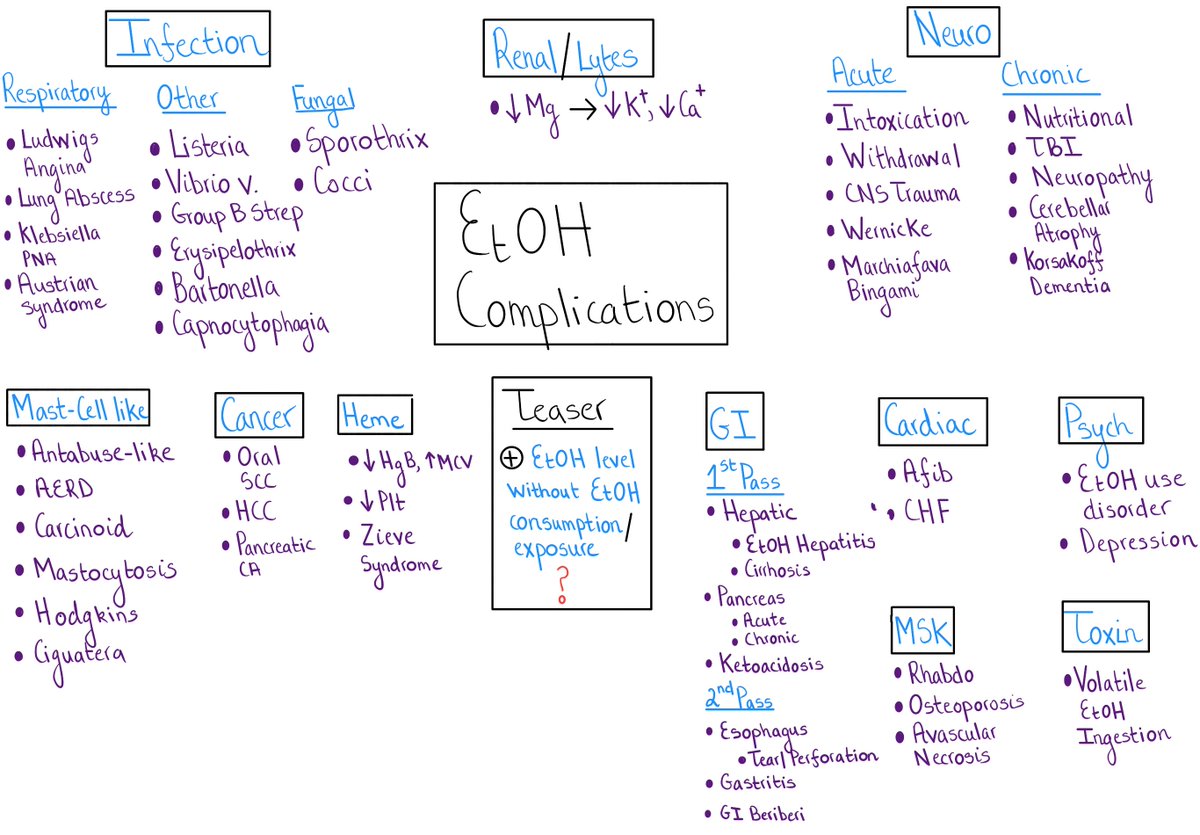H2O toxicity...
Say what?
Yes...
H2O toxicity.
The Story and The Schema.
Join us, #medtwitter & #medstudenttwitter
What is H20 toxicity?
It’s when the blood has too much H2O.
What exactly is too much?
Enough that neurons swell and
don't work well.
The symptoms of this mysterious condition?
When severe, patients can have a seizure, and other marked neurologic symptoms.
More commonly, patients have symptoms from the underlying cause, and not so much the H20 toxicity.
Hold that thought. We'll get to it soon.
Ok, so, if patients don't have symptoms specific to H20 toxicity, how are we supposed to suspect and diagnose it?
Honestly, we get lucky...
Instead, I am often worried about them and obtain a “basic lab eval", and that is where I get lucky.
Lucky, how?
The sodium comes back low...
Here's the key fact is this tale...
When we say "too much water", too much relative to what?
Relative to the amount of dissolved substances in the blood = osms.
Let’s go back to the causes H20 toxicity.
Here's how I break them down:
1.Excess H20 intake
2 Reduced renal H20 clearance
Time for The Schema.
How do we tease out between these 5 causes clinically?
To ensure we are solving the right problem, measure the serum osms**
If the Na is low, but the osms are normal, H2O toxicity may not be the problem at hand!
Check out this amazing tweetorial from @kidney_boy that illustrates this: bit.ly/2vNdcSz
I don't measure the osmolarity with every hyponatremic patient.
If the hyponatremia is mild, and I have a working diagnosis for the cause, I often treat accordingly, and if things don't go the way I expect, I get the serum osm.
Low serum osm + high urine osm = ADH.
If ADH is on, we then study whether
ADH switched on for physiologic reasons, or if it's inappropriately on = SIADH.
We use the
history (H20 intake, dietary osm intake),
med list (HCTZ) and
prior creatinine (CKD)
to tease out between the other causes, recognizing that multiple causes may be at play! (e.g, CKD + reduced osm intake)
@jackpenner's schema and video - bit.ly/3b64K0T
and
@DxRxEdu's breakdown on this @CPSolvers episode
bit.ly/2RQB3sW
Check them out!













